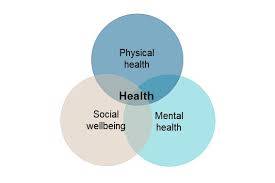Progression of Alzheimer’s Disease

Alzheimer’s progresses through several stages, each marked by a deterioration in cognitive functions and behavioral abilities:
- Early Stage (Mild): Often characterized by subtle memory lapses, individuals may forget familiar words or locations of everyday objects. It's common for friends and family to notice difficulties.
- Middle Stage (Moderate): Memory issues become more pronounced, and individuals may need help with daily activities. Confusion often worsens, especially in unfamiliar situations. Behavioral changes, such as mood swings or withdrawal from social interactions, may occur.
- Late Stage (Severe): Individuals lose the ability to respond to their environment, carry on a conversation, and control movement. They may require full-time assistance with daily personal care.
Causes of Alzheimer’s Disease
The exact cause of Alzheimer’s is not fully understood, but several factors are known to increase the risk:
- Age: The greatest known risk factor for Alzheimer’s is increasing age, most commonly affecting those over 65.
- Genetics: Family history and genetics play a significant role, particularly for those with a direct relative who has suffered from the disease.
- Brain Changes: Accumulations of beta-amyloid plaques and tau tangles in the brain are hallmark features of Alzheimer’s, contributing to the degradation of nerve cells.
- Lifestyle and Heart Health: Factors that increase cardiovascular risk—such as obesity, smoking, high blood pressure, and high cholesterol—also increase the likelihood of developing Alzheimer's.
Solutions for Managing Alzheimer’s Disease
While there is no cure for Alzheimer’s, several strategies can help manage symptoms and improve quality of life:
- Medication: Certain drugs can help manage symptoms, such as memory decline and behavioral changes. These medications aim to improve symptoms or slow the progression of the disease but cannot cure it.
- Lifestyle Changes: Regular exercise, a healthy diet, social engagement, and mentally stimulating activities have been shown to slow cognitive decline in Alzheimer’s patients.
- Support for Families: Alzheimer’s takes a significant toll on both patients and their families. Support groups, counseling, and resources are essential for managing the emotional and logistical challenges of caregiving.
Conclusion
Alzheimer's Disease is a complex condition that requires comprehensive management strategies to address its myriad challenges. Understanding its progression, underlying causes, and potential management solutions is crucial for those affected and their caregivers. By focusing on a combination of medical treatment, lifestyle adjustments, and robust support systems, it is possible to improve the lives of those dealing with Alzheimer’s and provide relief to their families.




No comments yet
Be the first to share your thoughts!